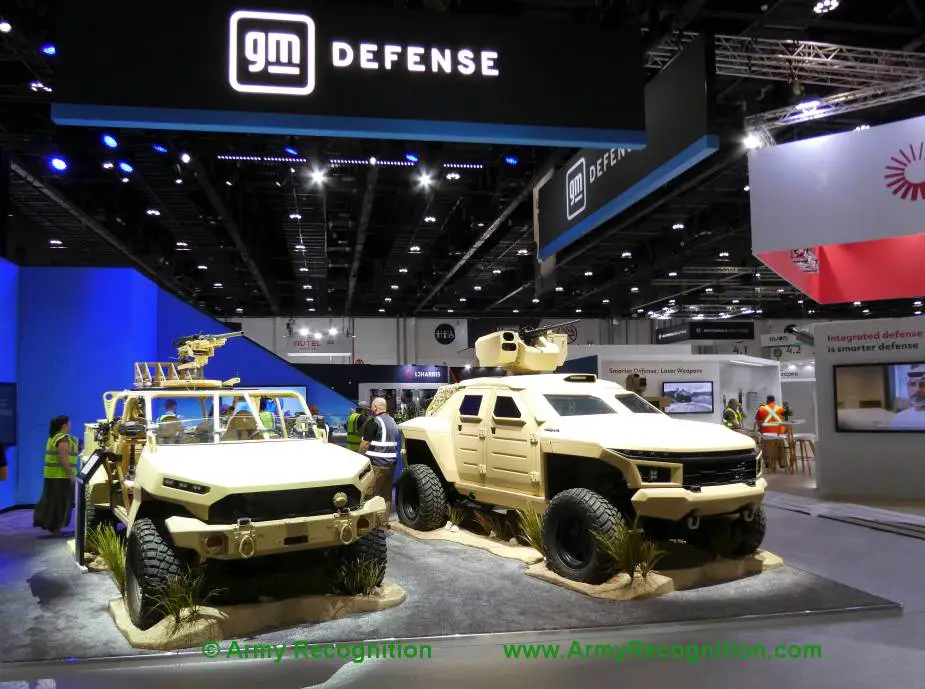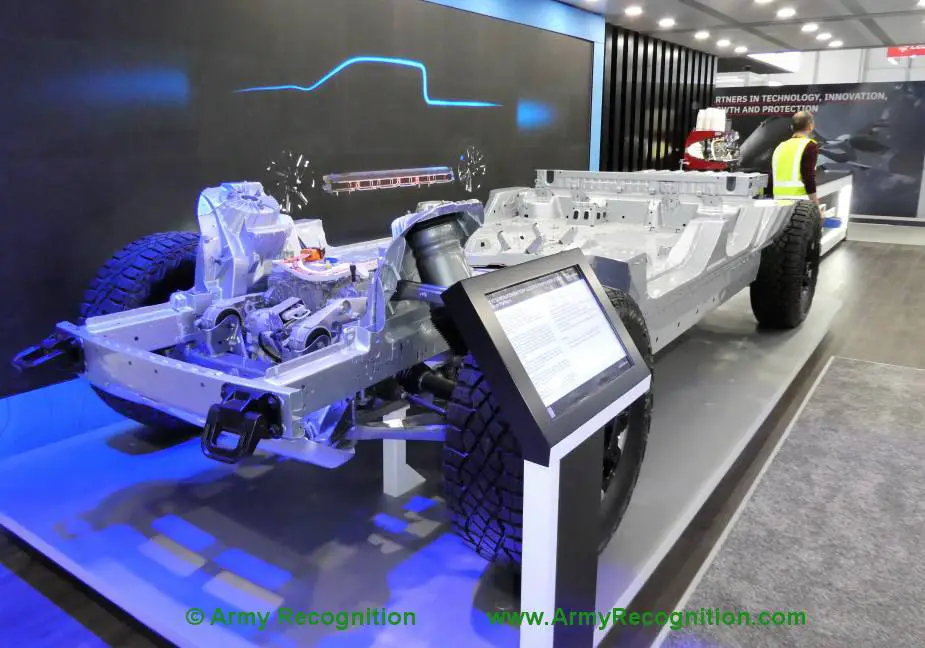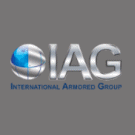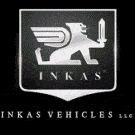General Motors (GM) has been exploring the use of hydrogen fuel cells for propulsion in the defense sector. Hydrogen fuel cells generate electricity by combining hydrogen with oxygen from the air, producing only water vapor as a byproduct. This makes them a promising alternative to traditional fossil fuels for transportation, particularly in applications where zero emissions are required.
Follow Army Recognition on Google News at this link

Infantry Squad Vehicle (ISV) modified with heavy gun carrier kit, and Next-Generation Light Tactical Wheel Vehicle (NGLTWV) in the hybrid electric series at IDEX 2023 (Picture source: Army Recognition)
GM Defense, a subsidiary of GM, has developed a hydrogen fuel cell-powered vehicle: the Infantry Squad Vehicle (ISV). The ISV is a lightweight and agile vehicle designed to transport soldiers and their equipment across rugged terrain. The vehicle is powered by a hydrogen fuel cell system that provides a range of over 400 miles and can be refueled in just a few minutes.
From internal combustion engines and diesel power trains to cutting-edge technologies like battery-electric vehicles and hydrogen fuel cells, GM advanced commercial technologies are at the heart of GM Defense’s model for delivering power and propulsion solutions to defense customers. Combined with GM investments totalling $35 billion in electric vehicles and autonomous vehicle technologies, GM Defense masters state-of-the-art know-how in this sector. GM Defense leverages GM’s ICE technologies to support light tactical to heavy-duty mobility vehicles that are strictly ICE-powered or pair GM’s traditional propulsion systems with GM’s battery technology to build hybrid or fully-electric solutions.
In addition to the ISV, GM Defense is exploring other applications for hydrogen fuel cells in the defense sector. For example, the company is working on a concept for a fuel cell-powered underwater drone that could be used for surveillance and other missions.
Overall, hydrogen propulsion has the potential to be a game-changer in the defense sector, offering a clean and efficient alternative to traditional fossil fuels. However, there are still some challenges to overcome, including the high cost of fuel cell technology and the limited availability of hydrogen refueling infrastructure.

Ultium Platform - Next generation battery electric propulsion system showcased at IDEX 2023 (Picture source: Army Recognition)
Ultium Platform
GM Defense is leveraging GM’s Ultium Platform to drive electrification to the tactical edge and to help allied governments to achieve their clean energy goals.
Ultium Platform is a game-changing electric vehicle (EV) architecture is built on a modular propulsion system and a ground-up electric vehicle architecture that can deliver power, range and scale beyond any previous GM hybrid or extended-range commercial EV technology.
Modular and scalable, Ultium Platform can use different chemistries and cell form factors, making it adaptable to changing needs and new technology insertions as they become available
Defense News March 2023














